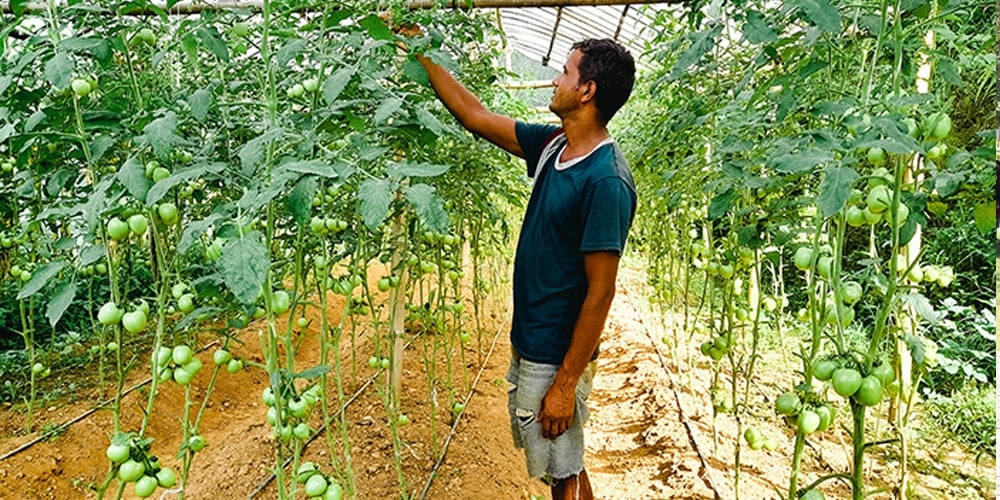
Suraj Khadka comes from a family of smallholder farmers in Nepal. At one time, Khadka used to produce seasonal vegetables such as chili, onion, and tomato. However, due to a lack of water for irrigation, growing vegetables during the dry season was extremely difficult. And growing tomatoes during the rainy season, when they fetch high prices, proved to be infeasible because the excessive rain negatively affected both crop growth and attracted pests, which increased the risk of disease.
Khadka is also a participant in the FOSTER project. The Adventist Development and Relief Agency (ADRA) supplied him with plastic materials and other local materials to build a greenhouse. In addition, Khadka installed a drip irrigation system with a 100-liter (26-gallon) tank that delivers water directly to the plant’s roots, especially during the dry season.
“I am able to extend the growing season of vegetables, especially tomato during the rainy season and gourds during winter,” Khadka said. “I am also able to efficiently use the scarce water through the drip system. This technology has really helped to boost the production even during extreme weather conditions.”
Over the last three years, Khadka’s income from his vegetables has increased by more than 300%. He has already sold his tomatoes for 50,000 Nepalese rupees (about US$417) and is hoping to make more from the onions in his field.
Khadka is using a variety of integrated pest management practices, including yellow sticky traps, lures, and pesticides made from locally available botanicals. This has helped him to significantly reduce the application of chemical inputs, which has also led to improvements in the soil’s condition.
About Sustainable Development Goal 13
Sustainable Development Goal 13 focuses on climate action and is one of 17 Sustainable Development Goals established by the United Nations in 2015. SDG 13 has targets that are to be achieved by 2030. This goal’s official mission statement is to “Take urgent action to combat climate change and its impacts.”
The FOSTER Project
After the devastating earthquake in Nepal in 2015, ADRA helped people living in rural areas of Nepal recover with the FOSTER project. In this joint project funded by ADRA Canada and the Canadian Foodgrains Bank, ADRA Nepal worked with farmers to teach them how to be successful at goat raising and market gardening. Through these simple methods, ADRA helped people develop new sources of income to support their families.
The original version of this story was posted by the Adventist Development and Relief Agency in Canada.